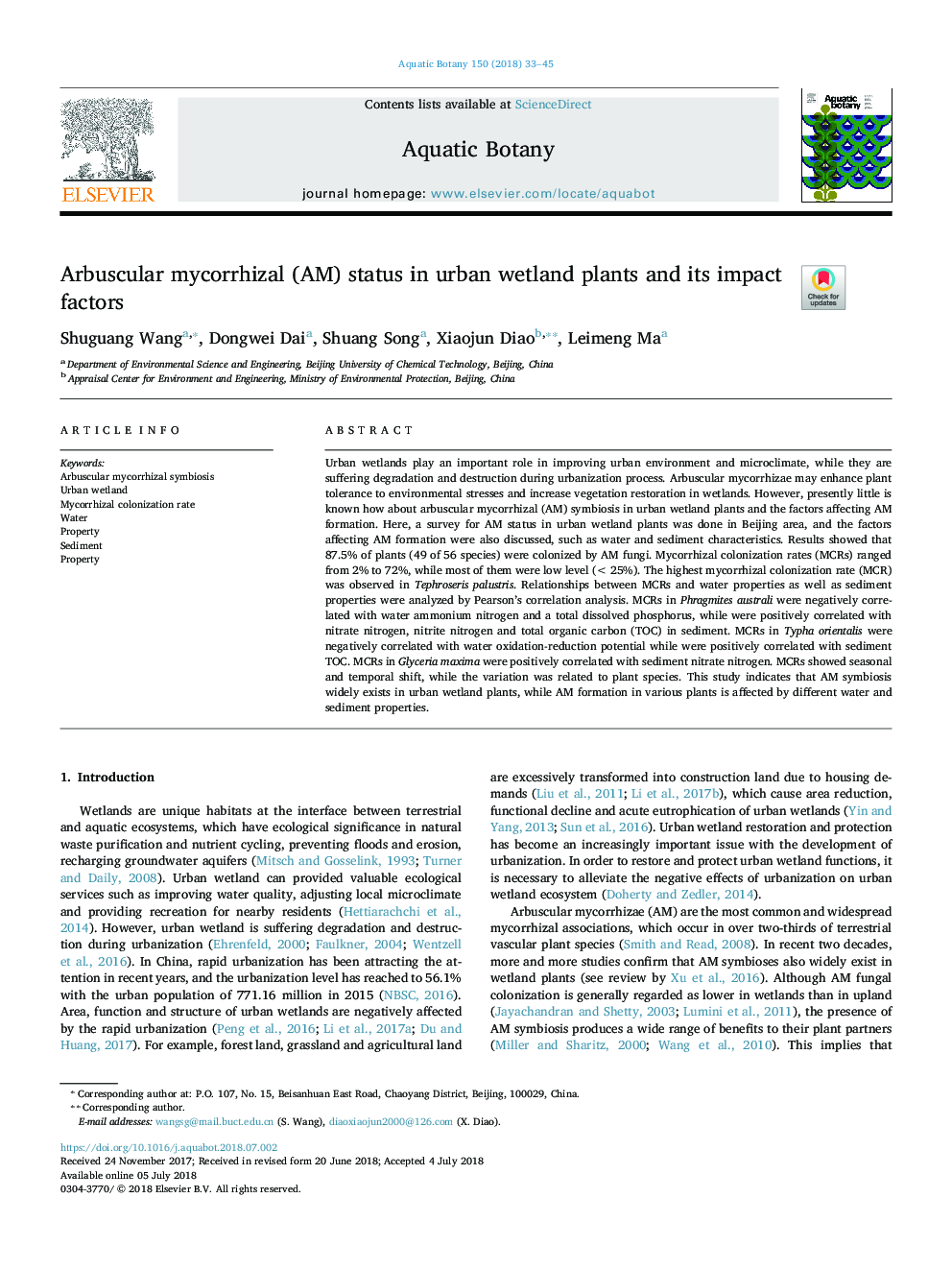| Article ID | Journal | Published Year | Pages | File Type |
|---|---|---|---|---|
| 8883544 | Aquatic Botany | 2018 | 13 Pages |
Abstract
Urban wetlands play an important role in improving urban environment and microclimate, while they are suffering degradation and destruction during urbanization process. Arbuscular mycorrhizae may enhance plant tolerance to environmental stresses and increase vegetation restoration in wetlands. However, presently little is known how about arbuscular mycorrhizal (AM) symbiosis in urban wetland plants and the factors affecting AM formation. Here, a survey for AM status in urban wetland plants was done in Beijing area, and the factors affecting AM formation were also discussed, such as water and sediment characteristics. Results showed that 87.5% of plants (49 of 56 species) were colonized by AM fungi. Mycorrhizal colonization rates (MCRs) ranged from 2% to 72%, while most of them were low level (<25%). The highest mycorrhizal colonization rate (MCR) was observed in Tephroseris palustris. Relationships between MCRs and water properties as well as sediment properties were analyzed by Pearson's correlation analysis. MCRs in Phragmites australi were negatively correlated with water ammonium nitrogen and a total dissolved phosphorus, while were positively correlated with nitrate nitrogen, nitrite nitrogen and total organic carbon (TOC) in sediment. MCRs in Typha orientalis were negatively correlated with water oxidation-reduction potential while were positively correlated with sediment TOC. MCRs in Glyceria maxima were positively correlated with sediment nitrate nitrogen. MCRs showed seasonal and temporal shift, while the variation was related to plant species. This study indicates that AM symbiosis widely exists in urban wetland plants, while AM formation in various plants is affected by different water and sediment properties.
Keywords
Related Topics
Life Sciences
Agricultural and Biological Sciences
Aquatic Science
Authors
Shuguang Wang, Dongwei Dai, Shuang Song, Xiaojun Diao, Leimeng Ma,
